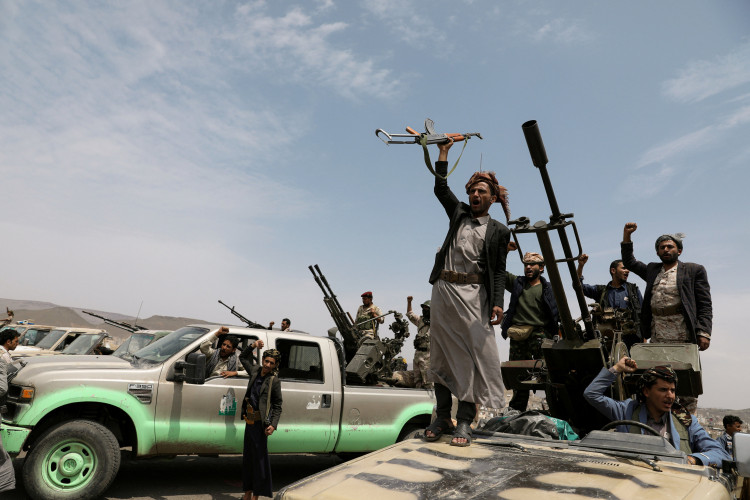The strategic waters of the Red Sea have become the latest theater of conflict as Yemen's Houthi rebels intensify their assaults on Israeli-linked ships, drawing international concern and U.S. military involvement. The situation underscores the volatile interplay of regional politics and global commerce in one of the world's most crucial maritime routes.
In recent weeks, the Houthis have shifted their tactics from launching missiles and drones at Israel to targeting commercial vessels in the Red Sea. The abduction of the "Galaxy Leader," a car transport ship associated with an Israeli tycoon, marks a significant escalation in the group's maritime operations. This alarming trend continued with the attack on a Norwegian oil tanker and the attempted hijacking of a tanker transporting aviation fuel.
The Houthi rebels' expansion of their target list to include any vessels heading to Israel, regardless of nationality, has sent shockwaves through the international shipping industry. Major companies like Maersk and Zim Integrated Shipping Services have been forced to reroute their vessels, leading to increased transit times and costs. Insurance premiums for maritime war risks have skyrocketed, reflecting the heightened danger in the region.
The U.S. has responded by stepping up its naval presence and contemplating the formation of a maritime task force to escort commercial ships through the troubled waters. Two U.S. carrier strike groups are currently deployed in the Middle East, signaling a robust deterrent posture against further Houthi aggression and Iranian support.
The strategic importance of the Red Sea, particularly the Bab-el-Mandeb Strait, cannot be overstated. This narrow passage is a lifeline for global trade, with thousands of ships, including oil tankers and carriers of agricultural products, passing through it daily. The Houthi rebels' control over key territories, including the major port city of Hodeidah, poses a direct threat to the security and freedom of navigation in this vital corridor.
As the international community grapples with the escalating situation, the potential for an extended ceasefire between Israel and Hamas offers a glimmer of hope for de-escalation. However, the Houthis' continued aggression and the complex geopolitical dynamics at play make the path to stability fraught with uncertainty.




